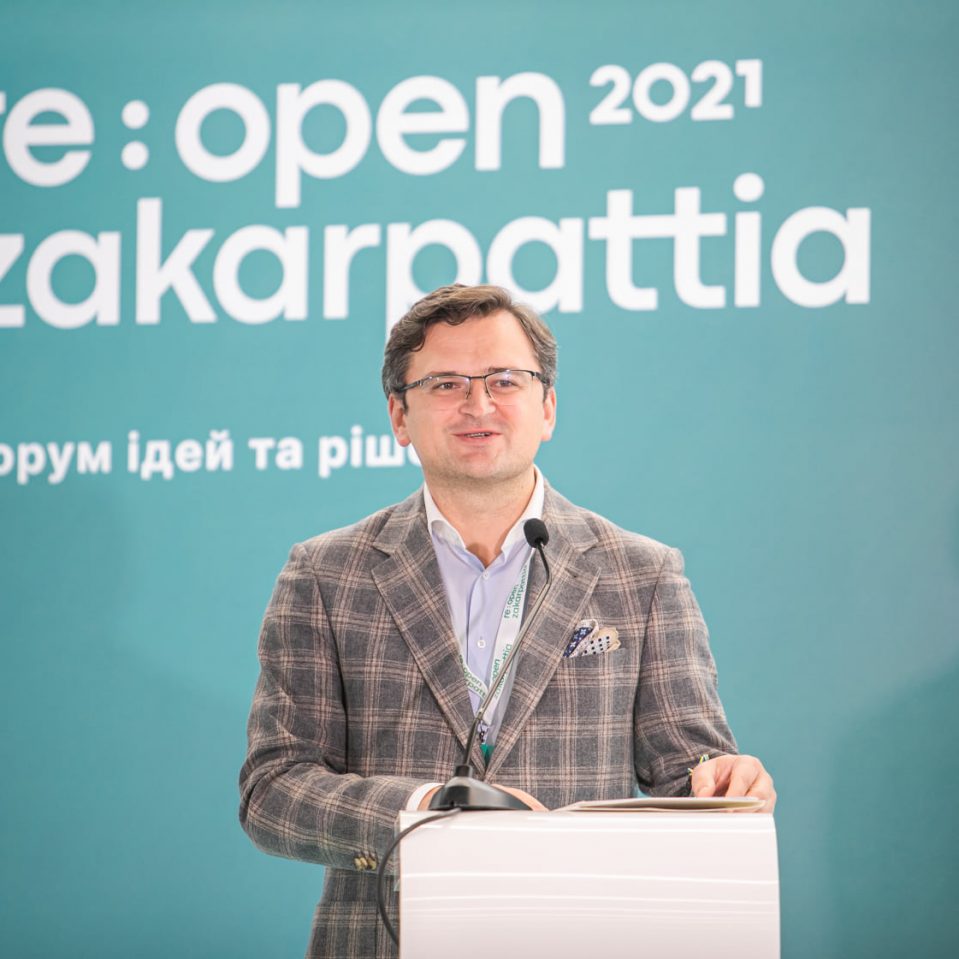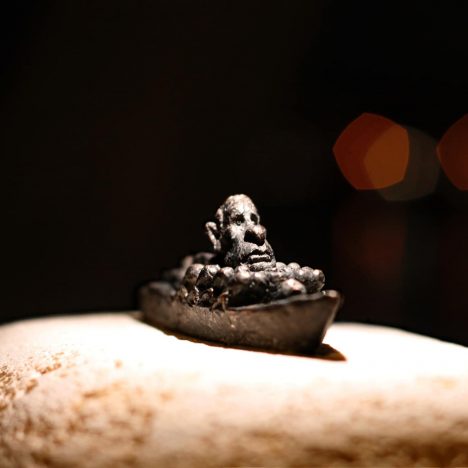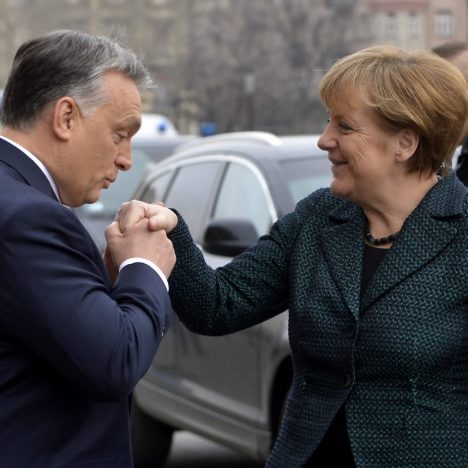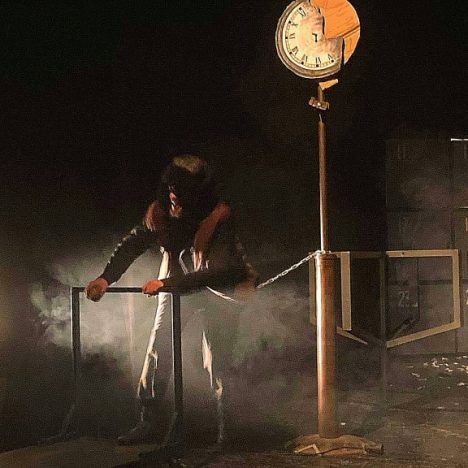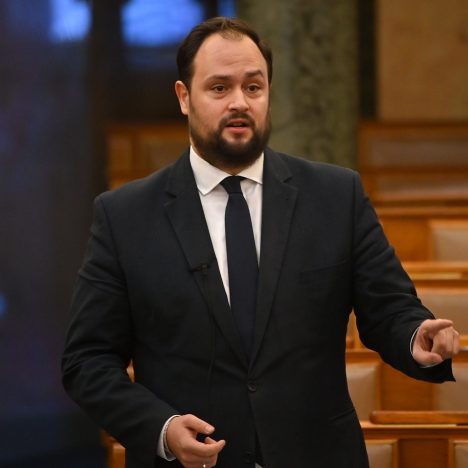During the Re: Open Zakarpattia 2021 forum, Foreign Minister Dmytro Kuleba spoke about Ukraine’s foreign policy strategy in Central Europe.
According to the Foreign Minister, sustainable development can be ensured, including by a new strategy for the Carpathian region, which Ukraine proposes to European partners to develop and launch.
“By developing Central European bonds and closer cooperation with our immediate EU and NATO members, we strengthen security, bring prosperity and pursue development for Ukraine. This is not about abstract notions. We are talking about very down-to-earth security and prosperity for every citizen of this country”.
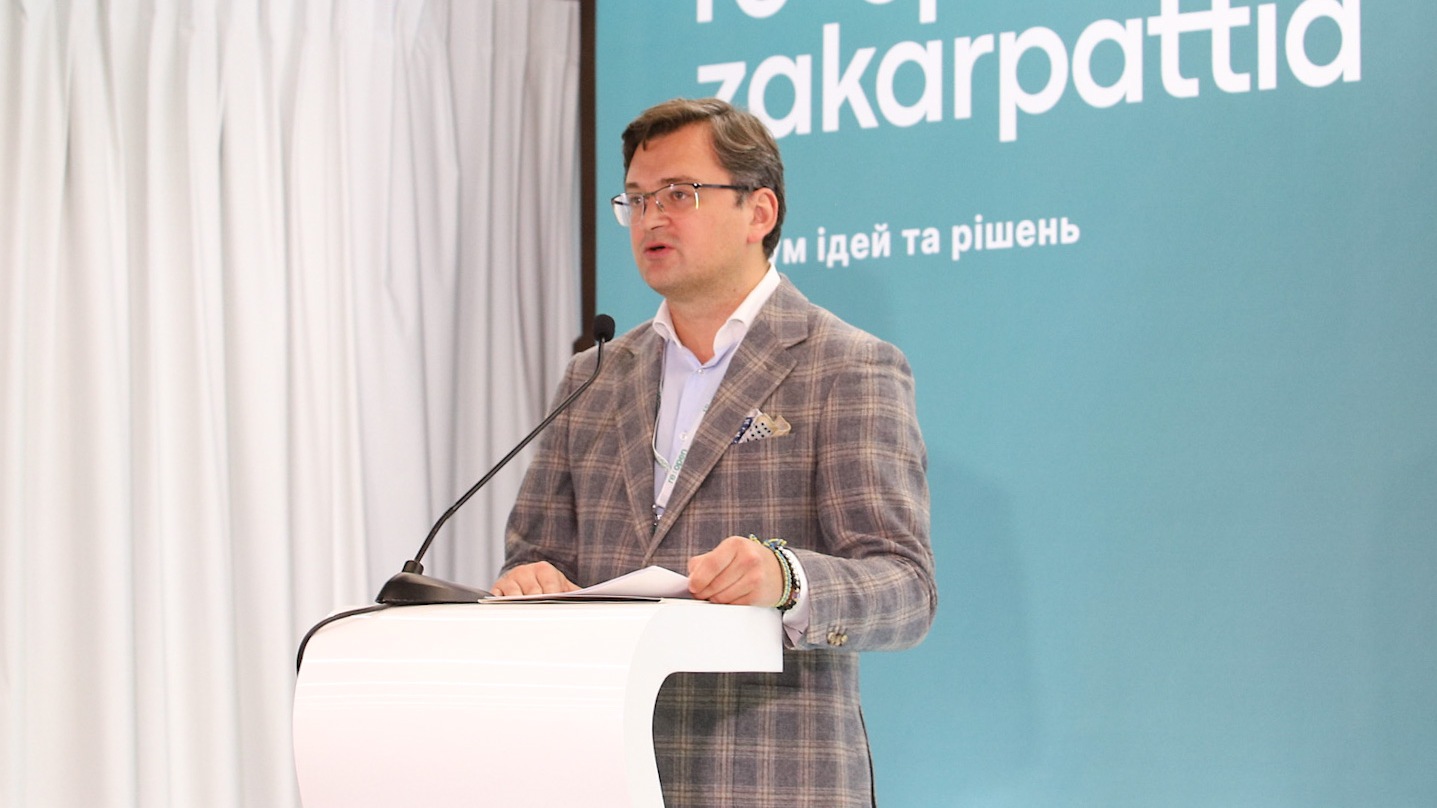
About Ukrainian Zakarpattia
Zakarpattia is one of the most appropriate place to state that Ukraine is an integral part of Europe, and more specifically, Central Europe. Zakarpattia is also the right place to say that diversity makes Ukraine stronger, not weaker.
It is common knowledge that diversity is one of the core European values. But Central Europe has always stood out as Europe’s most diverse region. Central Europe may actually be one of the world’s most multicultural areas. It is for this reason that this part of the world has seen so much pain and suffering in many centuries of its history, but also some extraordinary ability to unite and cooperate even in the most challenging circumstances.
In this context, Ukrainian Zakarpattia fits the Central European mosaic very naturally. Zakarpattia is a diverse, multiethnic Ukrainian region which borders four EU member-states. Cultures and identities form a unique mosaic here and the European idea of Unity in Diversity fits very well in this region. Ukraine sees this diversity as national strength, not national threat.
For decades, Ukrainian officials, and it is a sad truth, paid unacceptably little attention to this important region. For some years we’ve been actively correcting this mistake. By the way, this is one of the reasons why I immediately accepted the invitation to take part in this forum.
Zakarpattia is important not only in its international, Central European context. Zakarpattia and Zakarpatians are important for Ukraine as a whole.
There is no better way to illustrate this than to mention the 128th brigade of the Armed Forces of Ukraine. This, without exaggeration, heroic and one of the most combat-ready brigades of our army, unofficially called the ‘Zakarpathian Legion’, unites brave Ukrainian men and women of all backgrounds and identities. The unit’s identity mosaic truly represents the region it comes from.
The first hero of the 128th brigade who sacrificed his life defending all of us from Russian aggression, was a Ukrainian citizen of Roma descent Roland Popovych from Berehove, Zakarpattia. He was just 19 when he was killed on June 14th 2014 at the frontline near Stanytsia Luhanska. A Ukrainian from the westernmost region died defending our nation in one of the most easternmost parts of the country. Many other Ukrainians of Hungarian, Romanian, Slovak, Polish and other descent serve in the Ukrainian Army and defend Ukraine.
The choice of Roland Popovych, his sacrifice are extraordinary. Thanks to him and other heroes, Ukraine still exists as independent and pro-European country and continues to develop.
I want to take this opportunity to honor Roland and all of our brave warriors of all backgrounds and regions who defended Ukraine from the Russian aggression at the cost of their lives. Their photographs are displayed on the memorial wall in Kyiv, where I take all foreign ministers and high-level guests when they come to Ukraine.
A large photograph of the 128th brigade’s warriors is hanging on the wall of my own working cabinet at the Foreign Ministry. Every day when I walk in, they remind me of Ukraine’s strength and unity.
By the way, the unique blend of languages called Zakarpatska hovirka has turned into an asset at the frontline too. I was told the story that the 128th brigade’s soldiers often communicate on the military radiowave using this dialect. This makes it literally impossible for the enemy to intercept and understand what they talk about.
Ukraine is an indivisible part of a unified Central Europe historically, culturally and economically. This is the reason why Ukraine’s newly adopted National Foreign Policy Strategy attaches such great importance to the Central European region.
The document clearly states that strengthening Ukraine’s leadership in the region is an important element of our nation’s success on the path to EU and NATO membership.
The strategy prioritizes a proactive foreign policy aimed at developing good-neighbourly and partner relations with nations of Central Europe.
Since my first day in office, developing strong partnerships with our immediate European neighbors has been one of my top-priorities as Foreign Minister.
New regional alliances with our closest partners
Over the past year and a half, we have launched a number of new regional alliances with our closest partners. The Lublin Triangle with Poland and Lithuania, Associated Trio with Georgia and Moldova, Quadriga with Turkey. These new flexible alliances bring additional security, freedom and prosperity to the Baltic-Black Sea region and Ukraine as its important indivisible part.
It’s always trendy to speak of turmoil and challenging times in international affairs. To be frank and I think that diplomats and foreign affairs experts will agree with me, it’s difficult to recall a long period in history when they have not been this way, messy and turbulent.
What we all face now is not turmoil. International affairs are going through a period of antagonism and fragmentation. It means that the old, established alliances find it difficult to counter rising threats because of an increased antagonism between their member-states.
We should not overdramatize this period, it will be over one day. Blocs will reshape and adapt, while the period of fragmentation will be over. Meanwhile, we work on creating flexible supplementary alliances to achieve our immediate goals right now, as well as to better integrate Ukraine with EU and NATO so that our country is institutionalized within the West when the fragmentation will be over.
This strategy implies increased engagement of Ukraine in Central European initiatives and projects. And this is what we are already doing.
This year, Ukraine was for the first time represented at the ministerial meeting of Central European Five, which includes Austria, the Slovak Republic, Slovenia, Hungary, and the Czech Republic. For the first time ever, Ukraine was present at the NATO Eastern Flank Allies meeting with the participation of Poland, Romania and Turkey.
By taking over the Presidency of the European Union Strategy for the Danube Region Ukraine has become the first non-EU country to coordinate the activities of 14 nations in the Danube River Basin and implement relevant EU Strategy initiatives in the region.
I cannon but mention the Crimea platform as well. The summit of the Crimea platform last August in Kyiv and further activities are aimed at consolidating our international partners to make Europe stronger and more resilient.
Just to highlight the solidarity within Central Europe let me emphasize that leaders of Central European nations were among the first to respond to Ukraine’s invitation to participate in the Crimea Platform inaugural summit.
I would like to take the opportunity of Ambassadors’ presence here to deliver to your capitals my sincere words of appreciation for your solidarity and unwavering support of Ukraine’s sovereignty and territorial integrity.
At times our opinions with our immediate neighbors may differ, but I strongly believe we are able to agree on everything, even on our disagreements. We have nothing to share, except common past, current shared challenges and a common European future. This is the laying principle of everything we do in the Foreign Ministry when it comes to our relations with Ukraine’s immediate neighbors.
We all wish to live in a Europe whole, united and at peace. To create a better world for future generations. We in Ukraine are not begging anyone to do us a favor; we propose mutually beneficial partnerships and we are ready to deliver.
EU Strategy for the Baltic Sea Region
Today we talk to our EU partners on the possibility of Ukraine joining the EU Strategy for the Baltic Sea Region. Ukraine can make a valuable contribution in developing transport and infrastructure networks within the “Baltic – Black Sea” road and rail corridor.
Together with our partners, Ukraine proposes the European Union to develop and adopt a new EU Strategy for the Carpathian Region. This initiative would unite our efforts on achieving sustainable development for the Carpathian region based on the UN Convention 2003.
One special additional value Ukraine creates for the region is our highly developed IT sector. We see a lot of interest in spreading our best digitalization practices to other countries of Central Europe. I believe that together we are capable of building here in Central Europe one of the world’s most effective and connected digital networks.
Energy security in Central Europe
I want to draw special attention to the energy security, which is at stake in Central Europe now. Russia continues its blackmail and it’s using gas as a weapon in international relations. The purpose is to undermine unity in Europe.
It is obvious, that Ukraine is capable of effectively contributing to a more competitive gas market in Central Europe thus strengthening its energy security. I want to remind a simple fact. Ukraine’s gas transportation system has about twice as much free transit capacity as Nord Stream 2. There has never been any real market need for additional gas transportation routes in Europe. The only reasons why Moscow has always pursued them is purely political.
Furthermore, the current shortage of gas on the European market indicates that additional routes do not guarantee additional supplies. Let’s call things by their names. Russia limits exports to further raise gas prices, create an energy crisis and justify the launch of Nord Stream 2.
Applying the Third Energy Package to all gas supply routes and maintaining existing routes is the best solution for European gas consumers based on the principles of transparency and free market.
Solidarity is a key driving force that should unite us and make us stronger, also in terms of energy security. Ukraine has proven to be a reliable partner and a good friend in need.
When Moldova faced the gas crisis recently, Ukraine extended a helping hand. When Hungary faced shortages of gas supplies via Bulgaria and Serbia last week, the Ukrainian GTS Operator offered assistance and support to our Hungarian partners.
Even at the height of warfare in the Eastern Ukraine during the hottest phases of Russian aggression, the Ukrainian transportation system ensured unhindered gas supplies to our European partners and friends.
Ukraine aims to fully realize its huge potential for producing green hydrogen through solar and wind energy. Ukraine is well positioned to contribute to Europe’s green transition and it’s undertaking its own green transition. Let me be clear, green hydrogen is Ukraine’s historic European chance. It’s not about today. It’s not even about tomorrow. It’s about after tomorrow. To be successful after tomorrow we have to work now. We work hard and in the future, we will benefit from Ukraine’s new role as one of Europe’s key energy suppliers.
We are interested in deepening bilateral relations with all kinds of initiatives and formats existing in the European Union and more specifically in Central Europe. In this context, we are interested in a deepened engagement with the Organization of Regulators of Electronic Communications Markets of the EU.
Step by step, we are moving forward on all tracks. One of them is of course a digital “visa-free” regime with EU. We have successfully completed the technical update of a relevant Association Agreement annex. This document is the Roadmap for Ukraine’s integration into the EU Digital Single Market.
Common Aviation Area
One of the latest European integration achievements is the signing of the Common Aviation Area. The number of flights will increase and I hope many of them will arrive here, in the Uzhhorod Airport and actually the functioning of this airport is the result of our diplomatic work. I would like to thank our Slovak friends for the constructive approach that allowed us to conclude an agreement and relaunch the Uzhhorod Airport.
The Common Aviation Area will also create new opportunities for Ukrainian and EU airlines, and help attract investments to Ukraine’s aviation sphere.
Today, we are also actively developing the inland waterways of Ukraine. We already work with our European partners on including Dnipro and Southern Bug rivers in the Trans-European Transport Networks (TEN-T). I am confident that this step will create new opportunities for foreign investment in Ukraine’s river infrastructure.
By the way, the draft Law, which regulates access to the market of road transport services and implements relevant EU Regulation has received positive feedback from Ukrainian business and is currently being considered by the Verkhovna Rada of Ukraine.
Ukraine has much to offer on matters of regional security. The country’s capable armed forces have invaluable combat experience from fighting Russian troops since the 2014 invasion. And when it comes to cybersecurity and countering disinformation, Ukraine’s abilities to repel Russian tactics is unquestionable. We are now working closely with our NATO friends on strengthening our joint efforts in fighting cyber-attacks. And I hope that all NATO countries represented here who take part in the NATO’s Cyber Security Centre will support Ukraine’s accession to it.
Europe as a common space for new mutually beneficial opportunities
I am sure that Ukraine’s success as a part of the European family will be the success of the region, the success of Europe as a whole and the success of all our international partners.
This applies to the sustainable development of Zakarpattia, the consolidation of the region and the creation of a stronger, more efficient, more capable Europe.
As all Central European countries before us, which are now members of the EU and NATO, we do need a clear European and Euro-Atlantic perspective to keep moving forward and increasing the speed of this movement.
Today Ukraine has defined its future as an equal among equals in Central Europe.
Europe is our joint home and it is so very well felt here in Zakarpattia. It is the place where we were born and grew up. The place we wish our kids to live together in peace, mutual respect and understanding.
It is time for Europe and each of us to set out a clear roadmap for Ukraine to finally join NATO and the European Union and start writing a new history – a history of our joint Central European and Paneuropean success.
The 2nd forum of ideas and solutions “Re: Open Zakarpattia” takes place on November 5-6. This year it focuses on the development of Ukraine’s multicultural frontiers, social cohesion, integration and countering misinformation.
Що таке Infopost.Media?
Це суспільно-політичне видання, яке розповідає українській аудиторії про національні меншини, а їм – про сучасну Україну. Ціль Infopost.Media – посилити національний діалог та згуртованість, протидіяти дезінформації та маніпуляціям, а також повернути Україну в її рідний дім – вільну спільну мультикультурну Європу.

